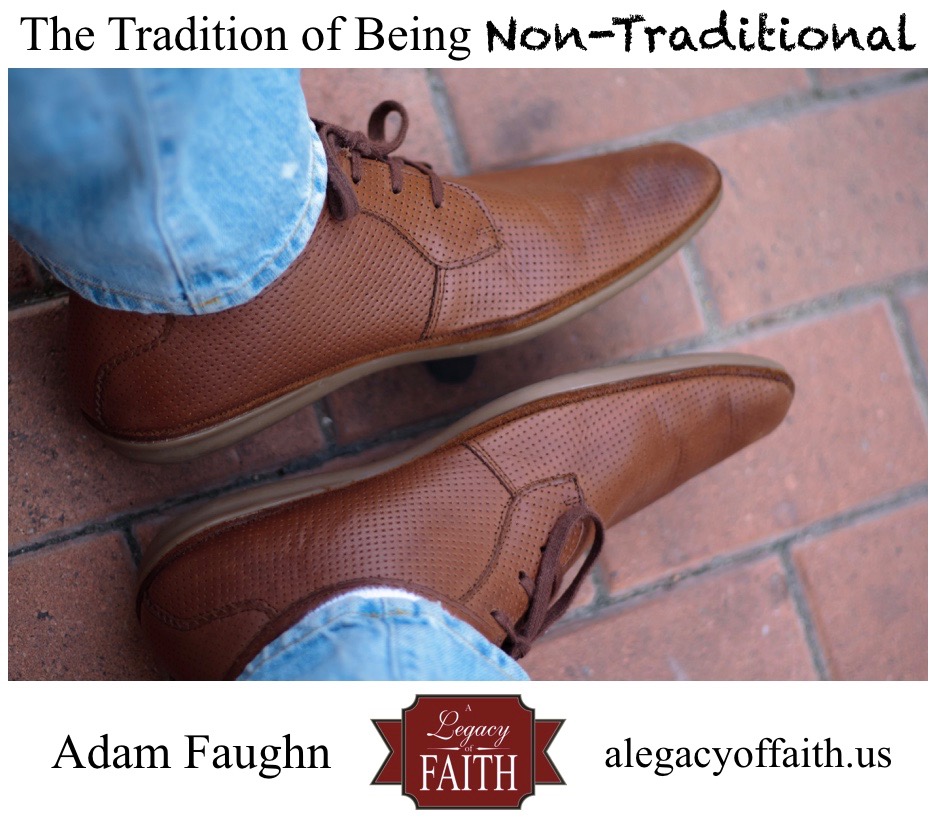The Tradition of Being Non-Traditional

Almost every day I read or hear someone talk about how they wish their church would be “less traditional.” I read or hear people say that they would like to be more “non-traditional.”
Sometimes the reasons are wholly against Scripture, as some push for mechanical instruments of music (which violates Ephesians 5:19, Colossians 3:16, and other passages) or other changes.
More often, though, I read or hear these words when people talk about things like dress or the “formality” of worship. Comments are often worded in these types of ways: “I think more people would come to our church if we were not so traditional about how we dress.” Or, “Our church is so traditional about being formal in our order of worship. It’s song, prayer, song, sermon…. every week. We should be more non-traditional.”
This post is not meant to talk about those issues specifically. How we dress in worship or the order of our services is another post for another time.
What I want to challenge today is the constant push to be “non-traditional,” and how it is actually illogical.
If we take how we dress for worship as an example, people will often say that there is some type of unwritten dress code in a congregation and it pushes people away who do not have nice clothes. The argument, then, goes to how we should dress down so as to be more welcoming to other people.
Again, this post is not about that issue. It’s about the arguments that are often made.
Think for a moment. In an effort to push back against the “tradition” of dressing up for worship, there are calls to be more non-traditional…
…and now, being non-traditional becomes a tradition in itself! It becomes the unwritten dress code to dress down.
You see, one thing we must realize is that everyone has–or at least desires to have–traditions. By pushing for being non-traditional, one is actually trying to make a tradition out of being non-traditional.
In just the same way that there can be an unspoken dress code or traditional order of worship, the push to remove those things now becomes the unspoken set of rules for a congregation.
The first step in these discussions needs to be that we all have traditions. Some are good. Some are bad. Some are completely neutral.
But if you are arguing about “tradition” and wanting to push for something that is non-traditional, you are, in reality, not making an argument at all. You are seeking to make non-tradition the new tradition.
Our primary focus, instead, should always be on what is Biblical; not on what is traditional.
To Receive Every Post from A Legacy of Faith through Email for Free, Click Here
AUTHOR: Adam Faughn


